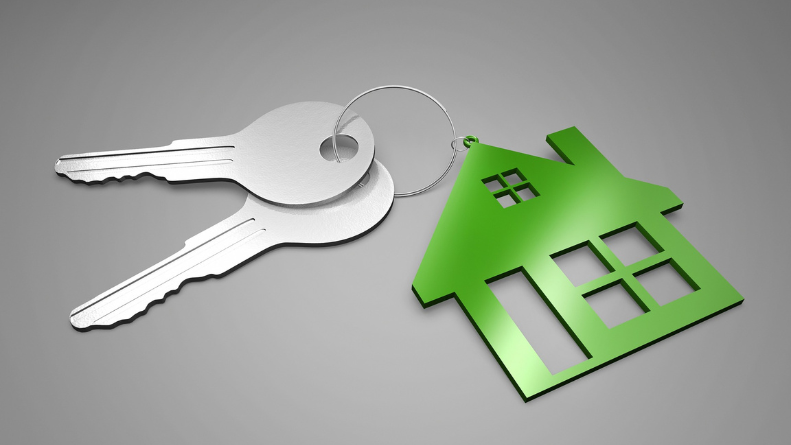Selling Your Home Solo: Private Property Sales
The idea of selling a property without an estate agent is gaining traction in the UK. Homeowners are increasingly exploring the option of private property sales to avoid hefty estate agent fees and take control of the sale process. But is it really feasible? This comprehensive guide will walk you through the ins and outs of selling your home without an estate agent, covering the benefits, necessary steps, and potential pitfalls.
The Benefits of Selling Privately
Financial Savings
One of the primary motivations for homeowners to sell privately is the financial savings. Estate agents typically charge a commission, often ranging from 1% to 3% of the sale price, which can add up to a substantial amount. By selling your home yourself, you can save this money and potentially increase your profit margin.
Greater Control
Selling privately allows you to have full control over the process. You set the price, market the property, and negotiate directly with buyers. This control can lead to a more personalised and potentially faster sale, as you’re not dependent on an agent’s schedule or priorities.
Flexibility in Marketing
When selling privately, you have the freedom to choose how and where to market your property. This could include listing on popular property websites like Rightmove or Zoopla, using social media, or even traditional methods like newspaper ads and local notice boards.
Jamie Johnson, CEO of FJP Investment, emphasises, “Selling your property privately can be a rewarding endeavour if you’re prepared to put in the effort. It’s about finding the right balance between saving costs and effectively managing the sale process.”
Key Steps to Selling Your Property
- Prepare Your Home
First impressions are crucial. Ensure your home is clean, decluttered, and in good repair. Consider minor renovations or staging to make it more appealing to potential buyers. A well-presented home not only attracts more interest but can also command a higher price.
- Set a Realistic Price
Accurately pricing your property is essential. Start by researching similar properties in your area using online property portals. You might also consider getting a professional valuation from a surveyor. Setting the right price can make the difference between a quick sale and a prolonged listing.
- Market Your Property
Effective marketing is key to attracting buyers. Take high-quality photos and write a compelling description highlighting your home’s best features. List your property on major property websites and leverage social media to reach a broader audience. Don’t forget traditional methods like putting up a “For Sale” sign and distributing flyers in your neighbourhood.
- Handle Inquiries and Viewings
Be prepared to handle inquiries and arrange viewings. Respond promptly to potential buyers and be flexible with viewing times. During viewings, be friendly and informative, answering any questions they may have about the property and the local area.
- Negotiate and Close the Deal
Once you receive an offer, it’s time to negotiate. Be clear about your terms and consider having a solicitor on hand to assist with the legal aspects of the sale. After agreeing on a price, you’ll need to draw up a contract and complete the necessary legal documentation to finalise the sale.
Common Challenges and How to Overcome Them

Time and Effort
Selling a home privately requires a significant time commitment. You’ll need to handle all aspects of the sale, from marketing to negotiations. It’s essential to be organised and dedicated to managing the process efficiently.
Legal and Paperwork
Navigating the legal requirements can be daunting. Engaging a solicitor early in the process can help ensure you comply with all legal obligations and avoid costly mistakes. They can assist with contracts, transfer of ownership, and other legal documentation.
Market Knowledge
A lack of market knowledge can lead to pricing errors or missed opportunities. Stay informed about market trends and seek advice from professionals when needed. Understanding the local property market will help you set a competitive price and attract serious buyers.
Potential Scams
Selling privately also opens the door to potential scams. Be vigilant and verify the identity of potential buyers. Use secure payment methods and consult with your solicitor to ensure the transaction is legitimate and safe.
Additional Tips for a Successful Private Sale
Utilise Online Tools and Resources
There are numerous online tools and resources available to help you manage the sale process. Websites like Rightmove, Zoopla, and others offer platforms for listing properties. Additionally, various online guides and forums can provide valuable advice and insights from other homeowners who have successfully sold their properties privately.
Understand the Buyer’s Perspective
Put yourself in the buyer’s shoes. What are they looking for? What concerns might they have? By understanding the buyer’s perspective, you can better address their needs and concerns, making your property more attractive to them. Be prepared to provide detailed information about the property, its history, and the local area.
Be Transparent
Transparency is key to building trust with potential buyers. Be honest about the condition of your property and disclose any issues upfront. This honesty can prevent complications down the line and can make buyers feel more confident about proceeding with the purchase.
Stay Organised
Keep meticulous records of all communications, documents, and agreements related to the sale. Organisation is crucial, especially when it comes to handling legal paperwork and negotiating terms. Using digital tools or a dedicated binder can help you stay on top of everything.
Seek Professional Advice When Needed
While selling privately means handling much of the process yourself, don’t hesitate to seek professional advice when necessary. This could be from solicitors, surveyors, or even financial advisors. Their expertise can help you navigate complex situations and ensure a smooth transaction.
Plan for Contingencies
Be prepared for potential setbacks. Whether it’s a deal falling through or unexpected repairs needed on the property, having a contingency plan can help you stay calm and focused. Flexibility and preparedness are key to successfully managing any obstacles that arise.
Final Word
Selling your property without an estate agent is entirely possible and can be financially rewarding if done correctly. While it requires a greater time commitment and effort, the benefits of saving on fees and having full control over the sale process are significant. By preparing your home, setting a realistic price, marketing effectively, and handling negotiations carefully, you can successfully navigate the private sale of your property.
Remember, it’s essential to be well-informed and organised. If in doubt, seek professional advice to ensure a smooth and successful sale. With the right approach and dedication, selling your property privately can be a fulfilling experience, putting you in the driver’s seat of your property transaction.
In conclusion, private property sales are not only feasible but can be highly rewarding. By understanding the process, preparing adequately, and staying vigilant, you can achieve a successful sale. Embrace the challenge, and you might find that selling your home privately is a venture worth undertaking.
ARE YOU READY TO START INVESTING?
Subscribe to our mailing list now for exclusive deals, investment guides and the latest information from the property market.







